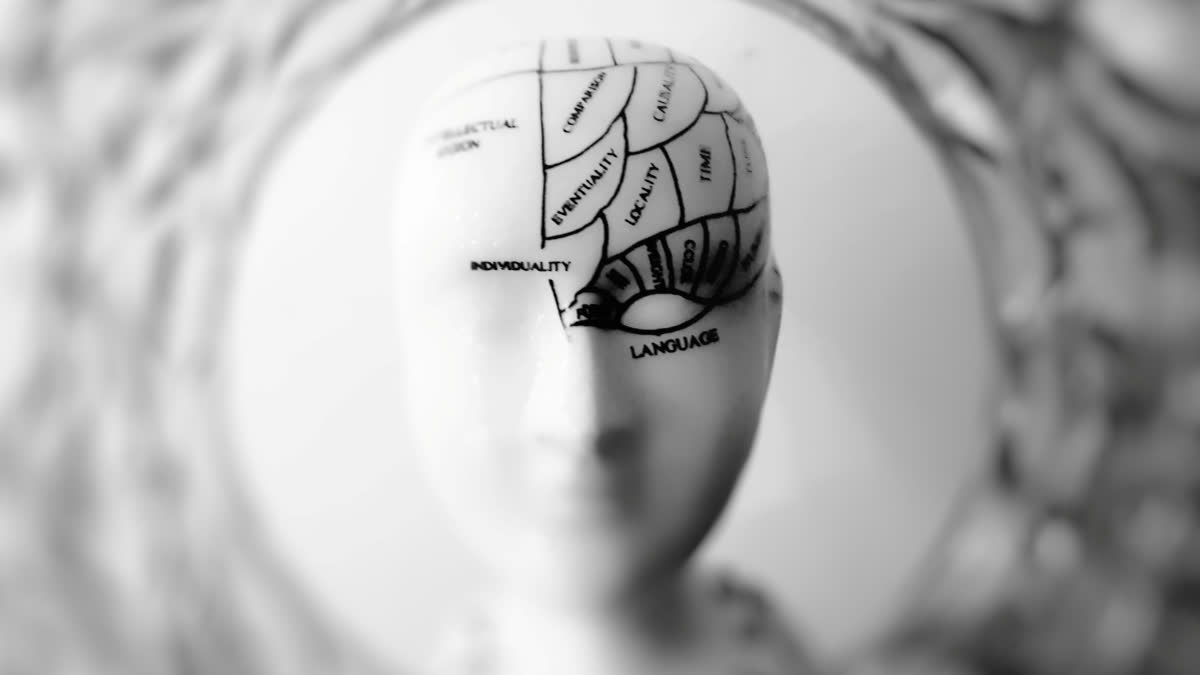Hyderabad:Parkinson's disease is classified as a movement disorder that affects the nervous system due to low levels of Dopamine, a neurotransmitter, in the brain. Its early signs include tremors, loss of the sense of smell, and coordination problems in the body. The reason for the development of Parkinson's Disease is still unknown, but experts believe that genetic changes and some environmental factors such as toxins might play a key role in its development.
The symptoms of this disease develop gradually and often begin with slight tremors in one hand, and a sense of stiffness in the body. Over time, other symptoms take over the body, and might also lead to dementia in some people. Early signs of it may include:
- Changes in the movement, such as tremors.
- Coordination problems or a lack of balance in the body causes a person to drop things or fall over.
- Loss of the sense of Smell.
- Changes in the gait. A person might lean slightly forward or shuffle while walking.
- Changes in the nerves that control the facial muscles, leading to fixed facial expressions.
- A tremor in the voice, or a softer voice.
- Handwriting becomes smaller and more cramped.
- Sleep issues due to restless legs and other reasons.
- According to a 2015 research, Rapid Eye Movement Sleep Disorder might be a powerful predictor.
The symptoms related to movement might gradually start on one side of the body and then affect both sides. Some of its other common symptoms include:
- Changes in mood, such as depression.
- Difficulty in chewing and swallowing.
- Fatigue.
- Skin Diseases.
- Constipation.
- Development of Delusions, Dementia, and Hallucinations.
But these symptoms do not necessarily mean that a person has Parkinson's disease. These symptoms can indicate various conditions as well, such as:
- A head trauma.
- Stroke.
- Encephalitis.
- Parkinsonism.
- Progressive Supranuclear Palsy.
- Multiple System Atrophy.
Parkinson's disease's similarity to other conditions makes it harder to be diagnosed in the early stages, as there is no specific test to detect it. Scientists have tried to identify why Parkinson's disease develops as a condition in people and come up with some variations of the reasons.
Also read:World Parkinson's Day 2023: Take 6 min for action against Parkinson's Disease
Low or falling dopamine levels are considered one of the reasons for the development of the disease. Dopamine is a neurotransmitter that helps in sending messages to the part of the brain that controls coordination and movement. Low dopamine level resists people from controlling their movements, and as the dopamine levels keep falling the symptoms keep becoming severe, and when the cells producing dopamine die completely, people are diagnosed with Parkinson's disease.
Low levels of norepinephrine are also considered a reason for Parkinson's disease. Norepinephrine is a neurotransmitter that looks after blood circulation and various automatic functions of the body. Damage to nerve endings that produce norepinephrine may cause motor and nonmotor symptoms such as:
- Stiffness and Rigidity in the body.
- Instability in body's posture.
- Tremors.
- Difficulty in focusing.
- Dementia.
- Anxiety.
- Depression.
This might also be the reason for people with Parkinson's constantly experiencing orthostatic hypotension, where our blood pressure changes when we stand up and experience lightheadedness or risk of falling.
Experts revealed that genetic factors are the cause of 10 per cent of the cases, mostly in people with early onset of the disease, but they do not consider it hereditary. According to studies, autoimmune conditions such as rheumatoid arthritis might also be linked to Parkinson's disease. Various environmental factors may also increase the risks of developing this disease, such as:
- Injuries to the head from contact sports.
- Exposure to toxins such as pesticides, metals, pollutants, and solvents.
- According to a study, men are 50 per cent more prone to developing the condition, than females.
- The risk of developing the condition increases after the age of 60.
- Some drugs and medicines lead to the condition of Parkinsonism.
- 5-10 per cent of people can have early onset of Parkinson's, before the age of 50.
Even though Parkinson's disease is not preventable, some habits can help you reduce the symptoms, such as:
- Avoiding contact with toxins such as herbicides, pesticides, solvents, etc. as much as possible.
- Avoiding head injuries and trauma to the head with safety precautions.
- Exercise to maintain dopamine levels in the body and maintain muscle-mind control.
- Including foods such as Turmeric, fruits rich in flavonoids, etc. in your diet.
